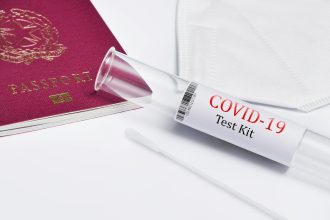currency-used-in-the-united-kingdom
Currency Used in the United Kingdom: Your Essential Guide to UK Money
Planning a trip or simply curious about the financial landscape across the pond? One of the first questions many people ask is: what is the official currency used in the United Kingdom? Understanding the local money is crucial for a smooth and enjoyable experience, whether you’re visiting London’s iconic landmarks or the Scottish Highlands.
This comprehensive guide will demystify the British monetary system, from its official name and denominations to modern payment methods and essential tips for managing your finances while in the UK.
Understanding the Official Currency Used in the United Kingdom
The official monetary unit throughout the United Kingdom is the Pound Sterling, often simply referred to as “Pound” or “British Pound.” Its international currency code is GBP, and its symbol is £.
The Pound Sterling is one of the world’s oldest currencies still in use and holds significant global value. You’ll encounter both banknotes and coins during your time in the UK.
- Banknotes: These are issued in denominations of £5, £10, £20, and £50. While the designs vary slightly between England, Scotland, and Northern Ireland, all are legal tender across the UK.
- Coins: The UK uses a variety of coins, including 1p, 2p, 5p, 10p, 20p, 50p, £1, and £2. The £1 and £2 coins are particularly important for daily transactions.
Navigating Exchange Rates and Value of the British Pound
The value of the Pound Sterling fluctuates against other major currencies. Before your trip, it’s wise to check current exchange rates to understand how much your home currency is worth in GBP.
Many online tools and financial institutions offer up-to-date exchange rate information. For official rates and detailed economic data, you can always refer to the Bank of England’s official website.
Modern Payment Methods Across the UK
While cash is still accepted, the UK has largely embraced digital and cashless payment methods. You’ll find that most establishments readily accept cards, making transactions convenient for visitors.
- Debit and Credit Cards: Visa and Mastercard are almost universally accepted. American Express is also widely used, though not as ubiquitous. Contactless payments are standard for transactions under £100.
- Mobile Payments: Services like Apple Pay, Google Pay, and Samsung Pay are very popular. Many people use their smartphones or smartwatches for quick, secure purchases.
- ATMs: Cash machines (or “hole in the wall”) are widely available, especially in urban areas. Most accept international cards, but be mindful of potential fees from your bank or the ATM operator.
Cash vs. Card: What’s Best for Your UK Trip?
Deciding between cash and card depends on your spending habits. For larger purchases, hotels, or restaurants, cards are generally preferred and safer. They also offer a clear record of your spending.
However, having some cash on hand is beneficial for smaller transactions, independent shops, market stalls, or for tipping. It’s also a good backup in case of a card machine malfunction.
Essential Tips for Managing Your Money in the United Kingdom
To ensure a smooth financial experience, consider these practical tips for handling your money in the UK.
- Inform Your Bank: Always tell your bank about your travel plans. This prevents them from flagging your international transactions as suspicious and blocking your card.
- Beware of Dynamic Currency Conversion (DCC): When paying by card, you might be offered the option to pay in your home currency. Decline this! Paying in Pounds Sterling usually offers a better exchange rate.
- Budgeting: Research typical costs for accommodation, food, and attractions to create a realistic budget. The UK can be an expensive destination, particularly in major cities.
- Tipping Etiquette: Tipping is less ingrained than in some other countries. For good service in restaurants, 10-15% is common. Tipping for taxis or bars is optional but appreciated.
For broader travel advice and safety information, you might also consult official government resources, such as the UK government’s travel advice pages (adjust destination as needed).
Historical Context of British Currency
The Pound Sterling boasts a rich history, evolving over centuries from silver coins to its modern polymer notes. Its enduring presence underscores the UK’s long-standing financial stability and traditions.
Future Trends in UK Payments
The UK continues to move towards a more cashless society. While cash won’t disappear entirely anytime soon, expect to see an increasing reliance on digital wallets, apps, and other innovative payment solutions.
Understanding the currency used in the United Kingdom is your first step towards a seamless visit. From the distinctive Pounds Sterling to the widespread use of digital payments, the UK offers various convenient ways to manage your money. Plan ahead, stay informed, and enjoy your financial peace of mind.
Ready to explore the UK? Secure your Pounds Sterling today!
Discover the official currency used in the United Kingdom, Pounds Sterling (GBP). Learn about banknotes, coins, modern payment methods, and essential money tips for your UK trip.
British Pounds Sterling banknotes and coins on UK map
Featured image provided by Pexels — photo by HANUMAN PHOTO STUDIO🏕️📸









